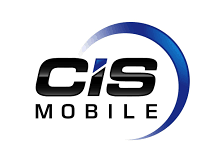AltOS
See the following -
CIS Mobile
 Headquartered in the United States, CIS mobile has a mission to address Government needs for a modern, convenient, and secure mobility platform. The altOS platform is American-made, and the U.S. source code is available to our customers for review. Read More »
Headquartered in the United States, CIS mobile has a mission to address Government needs for a modern, convenient, and secure mobility platform. The altOS platform is American-made, and the U.S. source code is available to our customers for review. Read More »
- Login to post comments
CIS Mobile Announces altOS on Pixel 4a Smartphones
![]() CIS Mobile, an Acorn Growth Company and a mobile security leader, announced the availability of altOS on the Pixel 4a smartphone. By combining the latest Pixel hardware and our altOS secure mobility platform, government customers now can protect sensitive data while using the latest high-performance smartphone. CIS Mobile’s altOS is a security-enhanced Android operating system designed with the extra management, security, and privacy features needed for sensitive government use cases, and used by multiple government intelligence and defense agencies.
CIS Mobile, an Acorn Growth Company and a mobile security leader, announced the availability of altOS on the Pixel 4a smartphone. By combining the latest Pixel hardware and our altOS secure mobility platform, government customers now can protect sensitive data while using the latest high-performance smartphone. CIS Mobile’s altOS is a security-enhanced Android operating system designed with the extra management, security, and privacy features needed for sensitive government use cases, and used by multiple government intelligence and defense agencies.
- Login to post comments
Telework Challenges in a Mobile Device World Facing a Pandemic
 The coronavirus pandemic is affecting all walks of life. Hospitals and medical professionals are on high alert. Schools are closing. Professional sports teams are playing in empty stadiums and, in some cases, not at all. Companies and governments are reviewing how to reduce health risks while maintaining productivity. An obvious response is to expand their telework programs for employees. Telework or remote worker programs have their challenges, and the concern is genuine for the federal government. There is the need to re-work policies, stretch budgets, deal with security concerns, and a big part of the challenge is the changing workforce as smartphones – rather than PCs and landlines of yesteryear – are the tools of choice.
The coronavirus pandemic is affecting all walks of life. Hospitals and medical professionals are on high alert. Schools are closing. Professional sports teams are playing in empty stadiums and, in some cases, not at all. Companies and governments are reviewing how to reduce health risks while maintaining productivity. An obvious response is to expand their telework programs for employees. Telework or remote worker programs have their challenges, and the concern is genuine for the federal government. There is the need to re-work policies, stretch budgets, deal with security concerns, and a big part of the challenge is the changing workforce as smartphones – rather than PCs and landlines of yesteryear – are the tools of choice.
- Login to post comments
The Goldilocks Problem of Mobile Security - Usability vs. Security
 The “Goldilocks and the Three Bears” story begins with a girl tasting porridge. The first bowl is too hot, the second is too cold, and the third is “just right.” This article considers mobile device security for government and organizations. The theme is trade-offs between the usability of a mobile device and security for confidential organizational data such as conversations, messages, documents, images, and locations. The security, confidentiality, and integrity of communication are key. However, if the usability of mobile devices for end-users, administrators, and organizations is too challenging, then the availability of the data for productive work is lost.
The “Goldilocks and the Three Bears” story begins with a girl tasting porridge. The first bowl is too hot, the second is too cold, and the third is “just right.” This article considers mobile device security for government and organizations. The theme is trade-offs between the usability of a mobile device and security for confidential organizational data such as conversations, messages, documents, images, and locations. The security, confidentiality, and integrity of communication are key. However, if the usability of mobile devices for end-users, administrators, and organizations is too challenging, then the availability of the data for productive work is lost.
- Login to post comments
Who Controls Your Smartphone? And How to Leverage Open Source to Prevent it from Spying on You
 There are many things about today’s world that warrant us asking that question. Do you or the mobile vendor control your smartphones? If you are a consumer, small or medium business (SMB) -- the answer is the vendor...What if you are a large enterprise or a government agency? The answer is still the vendor...How can the user regain control? Not all vendors have locked devices and walled gardens. Google’s line of Pixel hardware, for example, is a mid-market solution whose bootloader allows locking and re-locking. Pixels support two versions of Android. Google Mobile Services (GMS), where free services are tied to data monetization and a UX like Apple and Samsung devices. Secondly, Pixels can run Android Open-Source Project (AOSP) code that shares the same strengths as the GMS build, but the customer controls the code base and updates. There are several companies that are selling AOSP operating system builds for Pixel and other unlockable/lockable mobile phones and tablets...
There are many things about today’s world that warrant us asking that question. Do you or the mobile vendor control your smartphones? If you are a consumer, small or medium business (SMB) -- the answer is the vendor...What if you are a large enterprise or a government agency? The answer is still the vendor...How can the user regain control? Not all vendors have locked devices and walled gardens. Google’s line of Pixel hardware, for example, is a mid-market solution whose bootloader allows locking and re-locking. Pixels support two versions of Android. Google Mobile Services (GMS), where free services are tied to data monetization and a UX like Apple and Samsung devices. Secondly, Pixels can run Android Open-Source Project (AOSP) code that shares the same strengths as the GMS build, but the customer controls the code base and updates. There are several companies that are selling AOSP operating system builds for Pixel and other unlockable/lockable mobile phones and tablets...
- Login to post comments
Bastille and CIS Mobile: Enabling the Safe Use of Cell phones in Secure Facilities
CIS’s altOS Secure Mode solution locks cell phone communications abilities in secure facilities when they are entered into the system. Bastille, which can detect cell phones, Wi-Fi, Bluetooth, and IoT signals, verifies that the phone is not actively transmitting in any of those modes.
- Login to post comments
